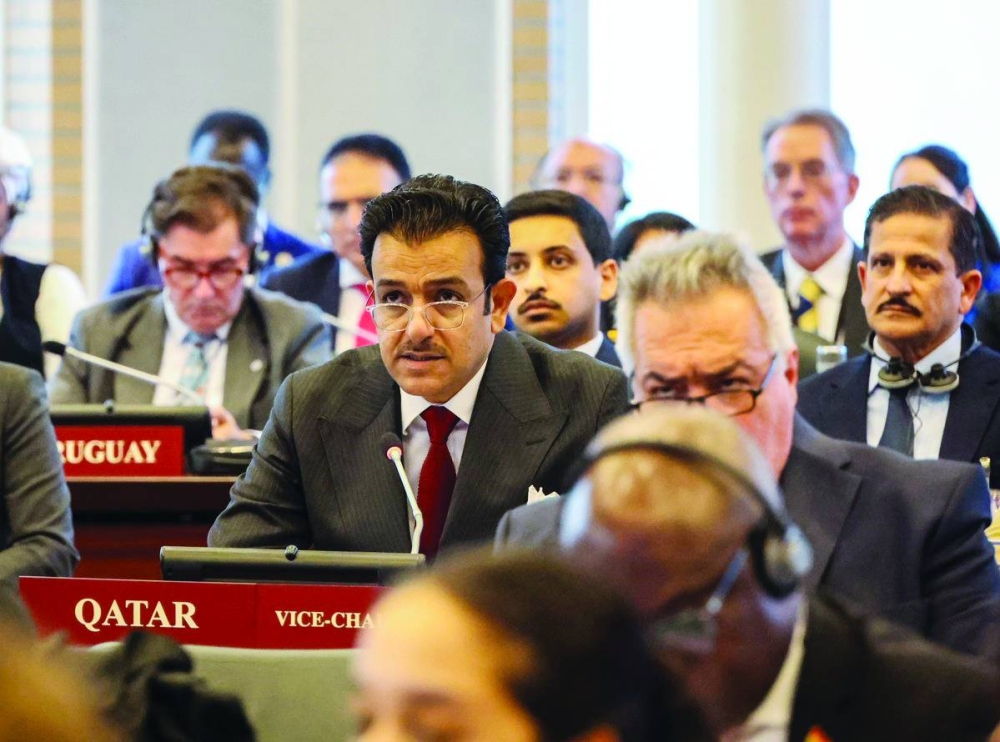Qatar participated in the 107th session of the Executive Council of the Organisation for the Prohibition of Chemical Weapons (OPCW) held in The Hague from Oct 8-11. The Qatari delegation was led by ambassador of the State to the Netherlands and its representative to the OPCW Dr Mutlaq bin Majed al-Qahtani.
In Qatar's address to the session, Dr al-Qahtani highlighted recent painful events in the region, particularly the violent assault by Israel on Gaza, marked by continuous bombings with various types of banned weapons and explosives, affecting innocent civilians, including children, women, and the elderly. He condemned the escalating attacks on Lebanon, calling them a blatant violation of international laws, customs, and the Chemical Weapons Convention (CWC), which is part of international law. He described these acts as genocide, war crimes, and crimes against humanity that should be prosecuted.
Dr al-Qahtani reiterated Qatar's support for Palestine's request to the OPCW to investigate Israel's alleged use of chemical weapons, and to bring those responsible for such acts to international criminal justice, providing justice for the victims and survivors of these brutal crimes.
Referring to the OPCW Director-General's annual report, Dr al-Qahtani expressed Qatar's strong support for efforts by the director-general and the OPCW's Technical Secretariat to promote the universality of the Chemical Weapons Convention. He urged all countries, particularly Israel, to join the CWC to prevent the use of these banned weapons and work towards a Middle East free of weapons of mass destruction.
He outlined two main challenges in combating chemical terrorism: the first is preventing the use of these weapons in terrorist attacks and holding perpetrators accountable; the second involves addressing the challenges posed by new technologies, such as artificial intelligence, and their use by non-signatory states and terrorist groups.
Dr al-Qahtani called for a comprehensive approach to combat chemical terrorism by combining robust regulatory frameworks, advanced technology, public awareness, and coordinated efforts to minimize the risks of chemical attacks. He emphasized the importance of building capacity, enacting national legislation, sharing intelligence, and establishing best practices to identify and hold accountable those responsible for such terrorist acts. Qatar, he affirmed, supports countries' compliance with UN Security Council Resolutions 1540 and 2663.
Dr al-Qahtani also acknowledged the recent OPCW report on progress in eliminating Syria's chemical weapons, noting the importance of swift resumption of inspection operations and addressing outstanding issues in line with the CWC and related council resolutions. Regarding the Russian-Ukrainian crisis, he underscored that Qatar views it as a threat to international peace and security and supports OPCW efforts toward a peaceful solution as the most viable option.
Highlighting the critical role of emerging technologies and artificial intelligence, Dr al-Qahtani noted their significance in enhancing the OPCW's efficiency, from inspection accuracy and cybersecurity to developing strategies for addressing chemical threats. He also recognized the OPCW's role in reviewing scientific and technological advancements affecting the CWC's implementation.
Dr al-Qahtani concluded by reaffirming Qatar's commitment to active membership in the OPCW and its Executive Council, pursuing shared objectives and maintaining close collaboration with the OPCW Technical Secretariat for expanded co-operation and coordination. Qatar also anticipates positive outcomes from the upcoming conference in Morocco, organized by Morocco and the OPCW, which will address AI's role in strengthening CWC implementation.

